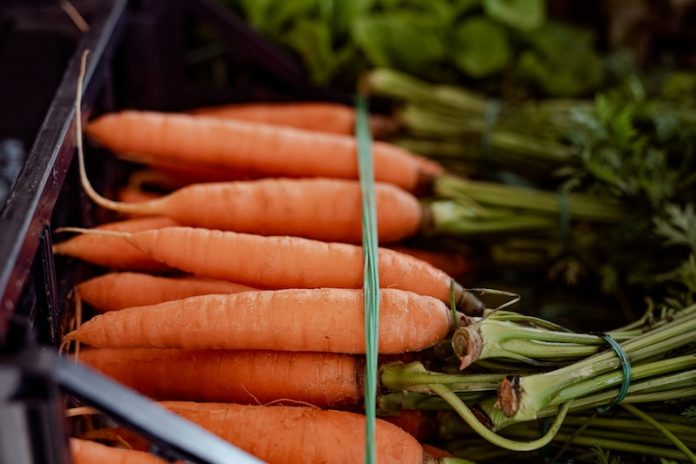
When it comes to managing diabetes, the foods you choose to eat play a crucial role. It’s like walking a tightrope; you need to balance your diet to keep your blood sugar levels in check.
Carrots, with their sweet taste and crunchy texture, often spark a question: Are they a good choice for those with diabetes?
Let’s dive into the world of carrots and see how they stack up against the needs of someone managing diabetes, without drowning in scientific jargon.
Carrots are often celebrated for their health benefits, including being rich in vitamins, minerals, and fiber. They’re known for their high beta-carotene content, which the body converts into vitamin A, essential for eye health and immune function.
But when it comes to diabetes, the conversation typically turns to sugar content and the glycemic index (GI), which measures how quickly foods raise blood sugar levels.
Despite their natural sweetness, carrots have a low GI score. This means that they release sugar into the bloodstream slowly, making them an excellent option for people with diabetes.
The fiber in carrots also helps in this regard, as fiber slows down the absorption of sugar, helping to prevent spikes in blood sugar levels.
Research backs up the diabetes-friendly profile of carrots. A study published in the British Journal of Nutrition pointed out that the consumption of non-starchy vegetables, including carrots, is beneficial for people with diabetes due to their low GI and high nutrient content.
Another study in the Journal of Diabetes and Its Complications highlighted the importance of dietary fiber in managing type 2 diabetes, suggesting that high-fiber foods like carrots can play a role in dietary strategies to control blood sugar levels.
But carrots don’t just stop at being low GI. They are also packed with antioxidants, which are compounds that fight against oxidative stress, a condition that is often elevated in people with diabetes. By reducing oxidative stress, carrots may help lower the risk of complications associated with diabetes, such as heart disease.
Moreover, the potassium in carrots can contribute to cardiovascular health by helping to regulate blood pressure. High blood pressure is a common concern for people with diabetes, making potassium-rich foods an important part of a diabetes care plan.
However, it’s important to consume carrots in moderation. While they are low in calories and sugar compared to many other fruits and vegetables, overconsumption of any food can lead to weight gain and affect blood sugar levels.
Including carrots as part of a balanced diet, rather than focusing on them exclusively, is the best approach.
To sum up, carrots are indeed a good choice for those managing diabetes. Their low glycemic index, high fiber content, and wealth of nutrients make them a smart addition to a diabetes-friendly diet.
They can be enjoyed raw, cooked, or as part of various dishes, providing both flavor and nutritional benefits.
In conclusion, while managing diabetes might seem like a balancing act, including foods like carrots can make it a bit easier. They not only offer health benefits but also add color and taste to your meals, proving that a diabetes-friendly diet doesn’t have to be bland or restrictive.
So, the next time you’re navigating the grocery aisles, remember that carrots are on your side in the fight against diabetes.
Follow us on Twitter for more articles about this topic.
Copyright © 2024 Scientific Diet. All rights reserved.





